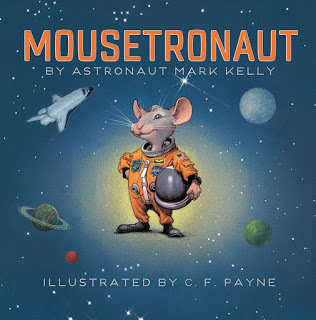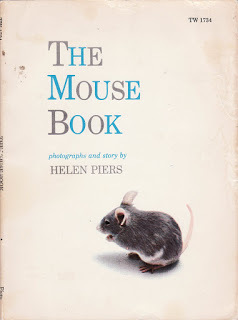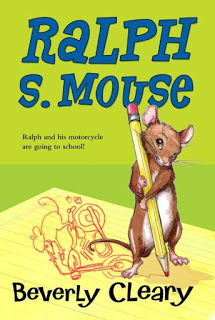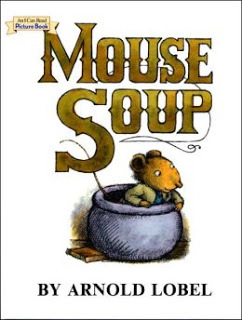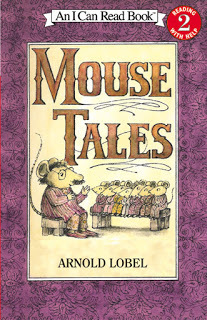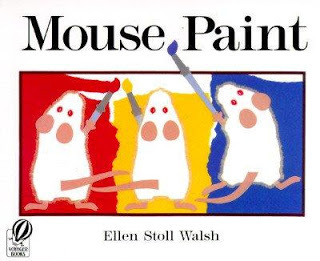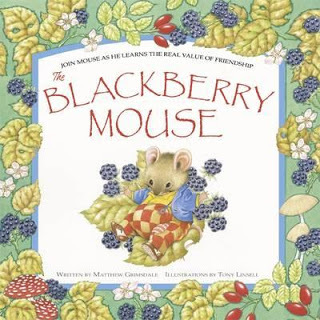Michelle Worthington's Blog, page 12
April 24, 2016
Book Review: The Last ANZAC by Gordon Winch and Harriet Bailey
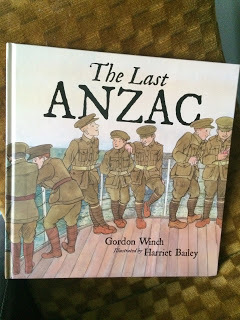
Today's book review is The Last ANZAC by Gordon Winch and Harriet Bailey. I love the fact that is book is actually based on the true story of a small boys meeting with Alec Campbell in 2001. Alec, who died at the age of 103, enlisted in the Australian Army in 1915 when he was just 16. He had lied about his age in order to be accepted by the army and agreed to fight at the front wherever he was needed. When James met him, he was the last living ANZAC. This timeless and humbling story, combined with amazingly vibrant and compassionate illustrations, gives us a special view of remarkable man, the year before he died.Product detailsFormat Paperback | 32 pages Publication date 01 Feb 2016 Publisher New Frontier Publishing Publication City/Country Epping, Australia ISBN10 1925059510 ISBN13 9781925059519http://www.bookdepository.com/Last-ANZAC-Harriet-Bailey-Gordon-Winch/9781925059519?ref=grid-viewwww.michelleworthington.com
Published on April 24, 2016 08:00
April 20, 2016
Book Spotlight: Mice
Published on April 20, 2016 08:00
April 19, 2016
Social Media Tips for Parents of Reluctant Readers
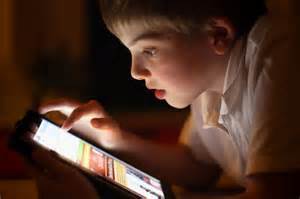
Children have an early initiation in the literary process because I belive despite the advances in modern technology, we still live in a culture that values print, where print is readily available and where print has a many and varied number of functions in the daily routine of everyone's lives. Because modern technology still involves the process of reading and writing, now called typing, children are already aware of basic concepts of literacy before they enter formal education, even if they aren't exposed to many books at home. The major difference is the level of development in each child, just as it has always been.
Educational institutions and the people who influence and fund the curriculum need to take on board this diversity of thinking as a difference in technological development, not a deficit to teaching methods. The social aspects of literacy also need to be prioritised. Parents and literacy advocates alike must advocate for a new way to present reading, writing, listening, viewing and communication. Literacy must be woven into the social and cultural aspects of a child's life from an early age. A new definition of literacy means going beyond traditional practices because children bring their technological experience , their family and community experience and their own world view with them to school.
They are growing up in a world that has access to information in many forms, much of which still contains the written word. Our children will respond positively when shown reading and writing is used for functional purposes that they themselves use in everyday life, rather than a function they are to sit quietly and observe until such time they go to school to acquire the knowledge in a classroom environment. Our children are social creatures and we need to encompass the social nature of learning and language development. No current standardised testing allows for that. We are judging our kids on an outdated scale and then complaining about teachers not doing their job. That's not fair. As parents, educators and authors, we need to speak up on behalf of our kids. There needs to be a new definition of literacy.
Talk soon
x Michellewww.michelleworthington.com
Published on April 19, 2016 08:00
April 18, 2016
Illustrator Spotlight: Freya Blackwood
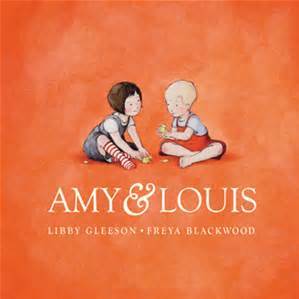
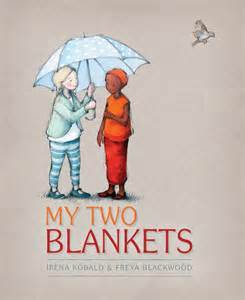
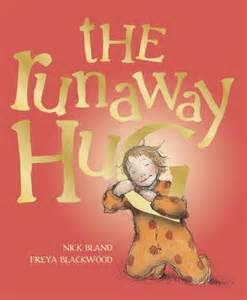
These are just a few of my favourite picture books Illustrated by Freya Blackwood. Check out her website www.freyablackwood.com.au for her full list of work
From her About Me Page
I was born in 1975, and grew up in Orange in New South Wales, Australia. As the daughter of a painter and an architect, I was encouraged to draw from a young age, and produced many illustrated books as a child. I left Orange to study a design degree (Visual Communications) at the University of Technology, Sydney and then worked for several years in the film industry in Sydney and Wellington, New Zealand.
In Wellington I worked at Weta Workshop on The Lord of the Rings trilogy as an effects technician. It was then I rediscovered illustration and have never looked back. In 2003 Scholastic Press published my first picture book, Two Summers, written by John Heffernan. I've since illustrated books written by Libby Gleeson, Margaret Wild, Roddy Doyle, Jan Ormerod, Nick Bland and Kyle Mewburn.
I love creating characters, giving them emotions and their own small world to live in. These as well as the challenges of design and the problem solving involved in creating a picture book are what continue to inspire me. Many of my books have been translated into other languages and can be read by people all over the world. In short - I couldn't be luckier or happier! I now live back in Orange with my divine daughter Ivy, our rather naughty whippet Pivot and four noisy chickens.
www.michelleworthington.com
Published on April 18, 2016 08:00
April 17, 2016
Book Spotlight: Pugs

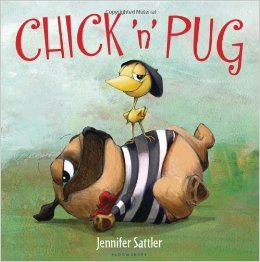 story about friendship
story about friendship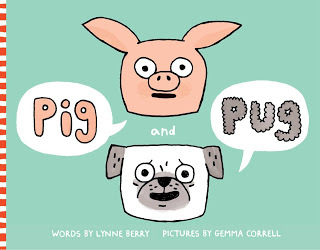 great illustrations
great illustrations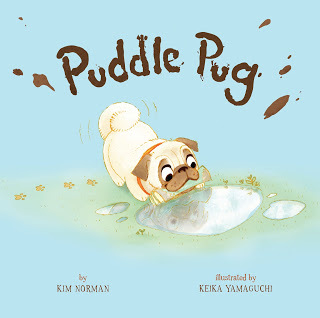 Pugs and puddles are a magical combination
Pugs and puddles are a magical combination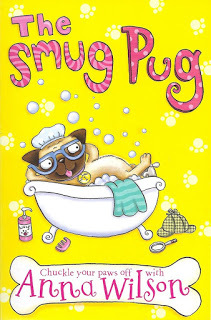 great for emerging readers
great for emerging readers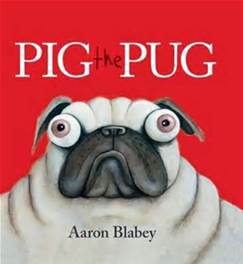
http://www.bookdepository.com/Pig-the...
Published on April 17, 2016 08:00
April 16, 2016
Tips for Parents to use modern technology to help Reluctant Readers
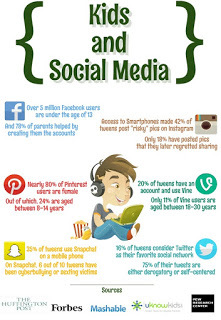
Our kids are using social media. In some cases, it is their first introduction to literacy. Literacy is always surrounded by modern values, customs and influences from the interactions of people in their social network. Social media reflects our roles and relationships. Literacy is a form of behaviour that always takes place within these roles and relationships in social and cultural context. The language used on social media influences our children's language, way of thinking, feelings, values and actions within their social network.
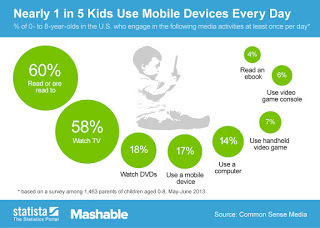
The way language is used online is different to the way it is used in the classroom and this is where kids can struggle. Parents need to be aware of the similarities and differences in order to help their child transition smoothly and succeed at school. Social media use at home has the potential to both help and hinder our kids at school.

Social media has a language specific to a particular context and understandable only to people within that context. Children may not have learnt that meaning varies according to who is reading, when and where they are reading and for what reason. They are not aware of the concept of multiple meanings that vary according to social, cultural and personal differences.
Social media can often depict a one-dimensional view of the way things are in the world without the benefit of a critical mind or personal experience to put things in perspective. A good teacher will help children create subjectivity when using social media, a way of looking at the world that isn't so black and white. We all need to challenge the 'I read it on the internet so it must be true' mentality that is emerging in our kids. Parents can help children transition by explaining the process of questioning and analysis that happens at school and getting them exited about learning that seeing things with a different point of view is an important part of why we go to school. We need to recruit our kids to think subjectively about literacy because they are the next generation of world changers.
Talk soonx Michellewww.michelleworthington.com
www.michelleworthington.com
Published on April 16, 2016 08:00
April 15, 2016
Top 3 ways parents can help Reluctant Readers
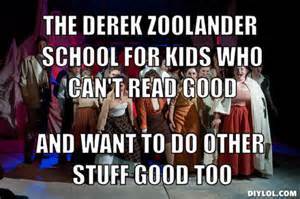
These days, kids who are not confident readers are labelled 'reluctant.' This to me seems a very generic word that doesn't take into account the many and varied reasons a child is not reading at their 'age appropriate' level. As a parent, you need to take charge of this. Here are some very simple ideas you can look into, to get a more comprehensive explanation about why your child has been put in the 'too hard' basket.
First, have their eyes checked. Most optometrists recommend your children be examined every year for families with older siblings/parents who wear glasses and every two years otherwise. Kids don't know if their vision is unclear, but you can see tell tale signs of squinting, holding the book too close or far away and getting headaches after school. In most cases, eye checks are bulk billed so it wont cost you anything to check.
Secondly, set a trap to catch your child reading. It is important watch your child at home to find out their reading habits. Its a good idea to look and see if they are independently reading to themselves if there are books 'left out' for them to pick up. If they have no problems reading and understanding an age appropriate book in their heads, you might find the real problem lies with them not wanting to read out loud. Unfortunately, this is the only way a teacher can determine if they are reading correctly so you need to get them used to it, at least just for school. A good thing to mention is that they don't have to read aloud forever, just until the teacher can see they are reading all by themselves.
If they are still struggling, here are some simple tips to get them used to the sound of their own voice.
Step1: get them to hum while they are reading, not saying any words, just making a sound so they have to learn to read and listen to their own voice at the same time.
Step 2: start saying the words but in a very flat, low monotone voice, with no expression. It is harder than it sounds and the kids will soon learn that it is easier to read with a natural intonation.
Step 3: when they are confident, as the teacher for a private before or after school appointment and have your child read them with no other kids listening so they can see the level of reading your child is actually attaining. Hopefully then, if you have a good teacher, they can help your child with other confidence boosting techniques in the class room to encourage them to read in front of others.
Thirdly, if your child is really struggling with learning to read, have them independently assessed by a speech pathologist. Many learning difficulties are overlooked because children fudge through reading time and are kept at a level under their actual comprehension in their early years of schooling and then slip through the cracks in older grades when reading becomes more independent. You know your child better than anyone else, and teachers have so much pressure on them these days with work load and extra responsibilities, it is our responsibility as parents to take matters into our own hands and go into bat for our kids when we know something is just not quite right.
Of course, the other way is just to take them to the book store and library and let them dig around until something catches their attention. It only takes one book where children can see their own reflection for them to become life long readers.
So when your 'reluctant' reader says to you:

take the time to dig a little deeper and don't let your square peg be dismissed because they don't fit into the system's round hole. Reading is a life skill that is essential to all future endeavours and you can never do too much to ensure your child feels comfortable learning to read. It is absolutely within your power to give your child the gift of reading.
Talk soon,x Michellewww.michelleworthington.comwww.michelleworthington.com
Published on April 15, 2016 08:00
April 14, 2016
Yellow Dress Day: Raising Funds for International Rett Syndrome Foundation

Ava has Rett syndrome. It strikes all racial and ethnic groups, and occurs worldwide in 1 of every 10,000 to 23,000 female births. It is a developmental disorder that causes problems in brain function that are responsible for cognitive, sensory, emotional, motor and autonomic function. These can include learning, speech, sensory sensations, mood, movement, breathing, cardiac function, and even chewing, swallowing, and digestion.

The core mission of the IRSF is to fund research for treatments and a cure for Rett syndrome while enhancing the overall quality of life for those living with Rett syndrome by providing information, programs, and services. Rett syndrome presents many challenges, but with love, therapy and assistance, those with the syndrome can benefit from school and community activities well into middle age and beyond. They experience a full range of emotions and show their engaging personalities as they take part in social, educational, and recreational activities at home and in the community.
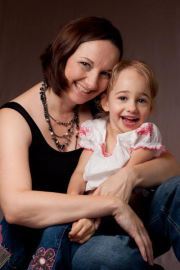
Proceeds from the sale of picture book "Yellow Dress Day" by Michelle Worthington go directly to the International Rett Syndrome Foundation on behalf of Ava Larder. Thank you for your support.
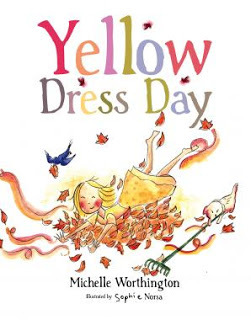 Available at http://www.newfrontier.com.au/books/y...
Available at http://www.newfrontier.com.au/books/y...Ava wears a different-coloured dress for each type of day - a red dress for hot days, a purple dress for rainy days and a blue dress for cold days. One whistling, whirly, windy morning, Ava and her puppy want to go out and play. But Ava's favourite coloured dress was missing. Will Ava's mother find something for her to wear on her yellow dress day? Product detailsFormat Paperback | 32 pages Dimensions 200 x 250mm Publication date 01 Jan 2014 Publisher New Frontier Publishing Publication City/Country Epping, Australia Illustrations note colour illustrations ISBN10 1921042109 ISBN13 9781921042102
https://www.bookdepository.com/Yellow...
www.michelleworthington.com
Published on April 14, 2016 08:00
April 13, 2016
Book Review: Blow Me a Kiss by Karen Collum and Serena Geddes
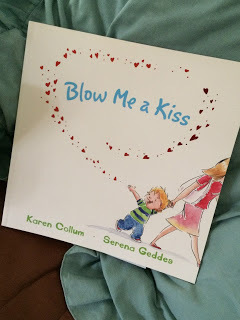
Not to be confused with the P!nk song, Blow Me a Kiss is a beautiful picture book by Karen Collum and Serena Geddes about spreading happiness to a world that sorely needs it. Do you sometimes delight in the happiness of small children and wish you could bottle it, or at least figure out how to get that happy again? The great thing about kids is they love to share their feelings and being happy is a great place to start. This encourages kids to be open about what emotions they are feeling and understand the value of sharing a simple gesture in order to make someone's day.
Product detailsFormat Paperback | 32 pages Dimensions 240 x 240mm Publication date 01 Apr 2015 Publisher New Frontier Publishing Publication City/Country Epping, Australia ISBN10 1925059340 ISBN13 9781925059342 https://www.bookdepository.com/Blow-M...
Published on April 13, 2016 08:00
April 12, 2016
Tips for Authors : How to engage reluctant readers on author visits
Doing author visits can be daunting for adults, with kids being the toughest audience there is. Think of exciting and engaging ways to encourage children who might otherwise be disinterested by being the person who changed their minds about reading.
www.michelleworthington.com
Published on April 12, 2016 08:00

